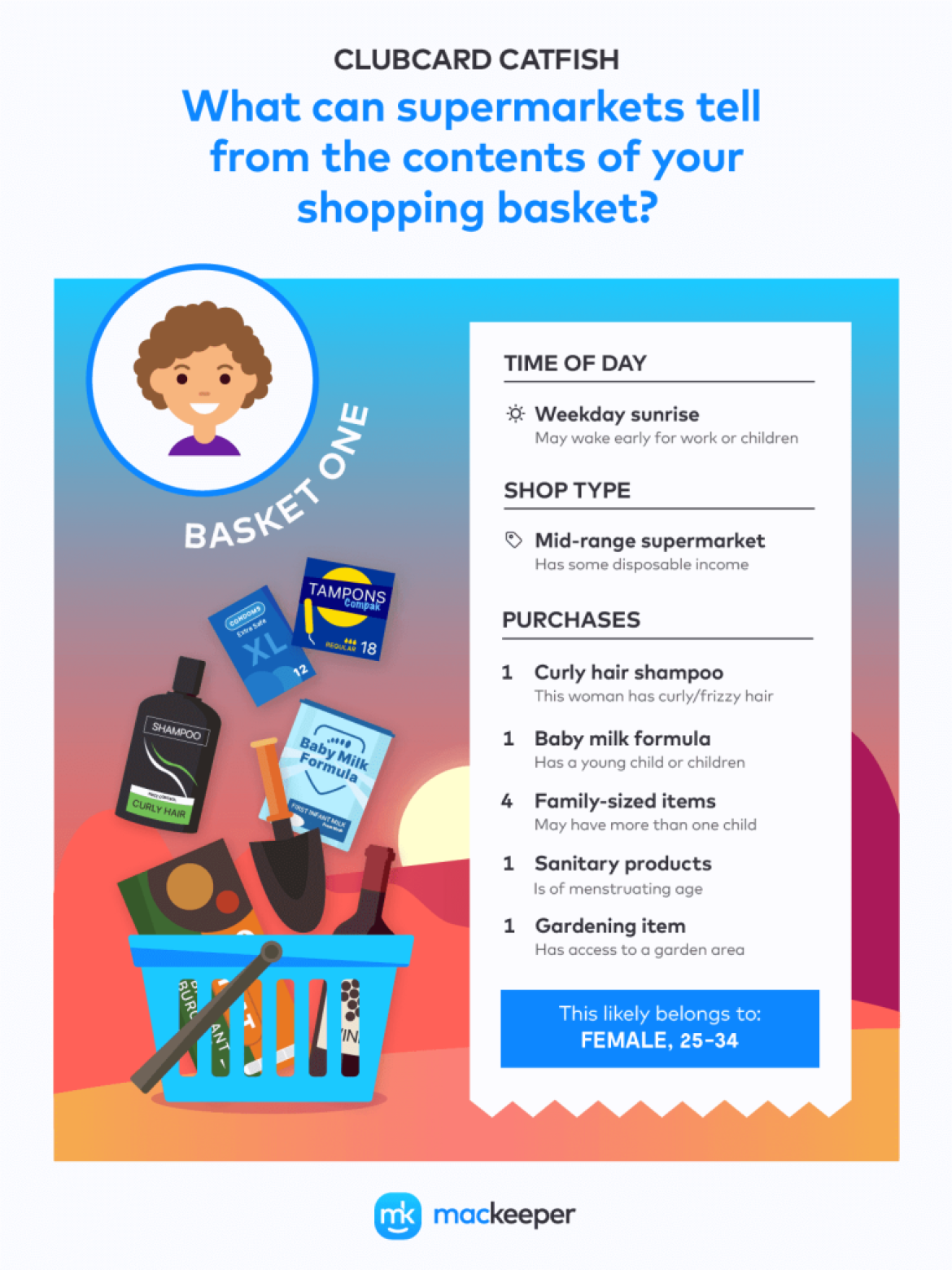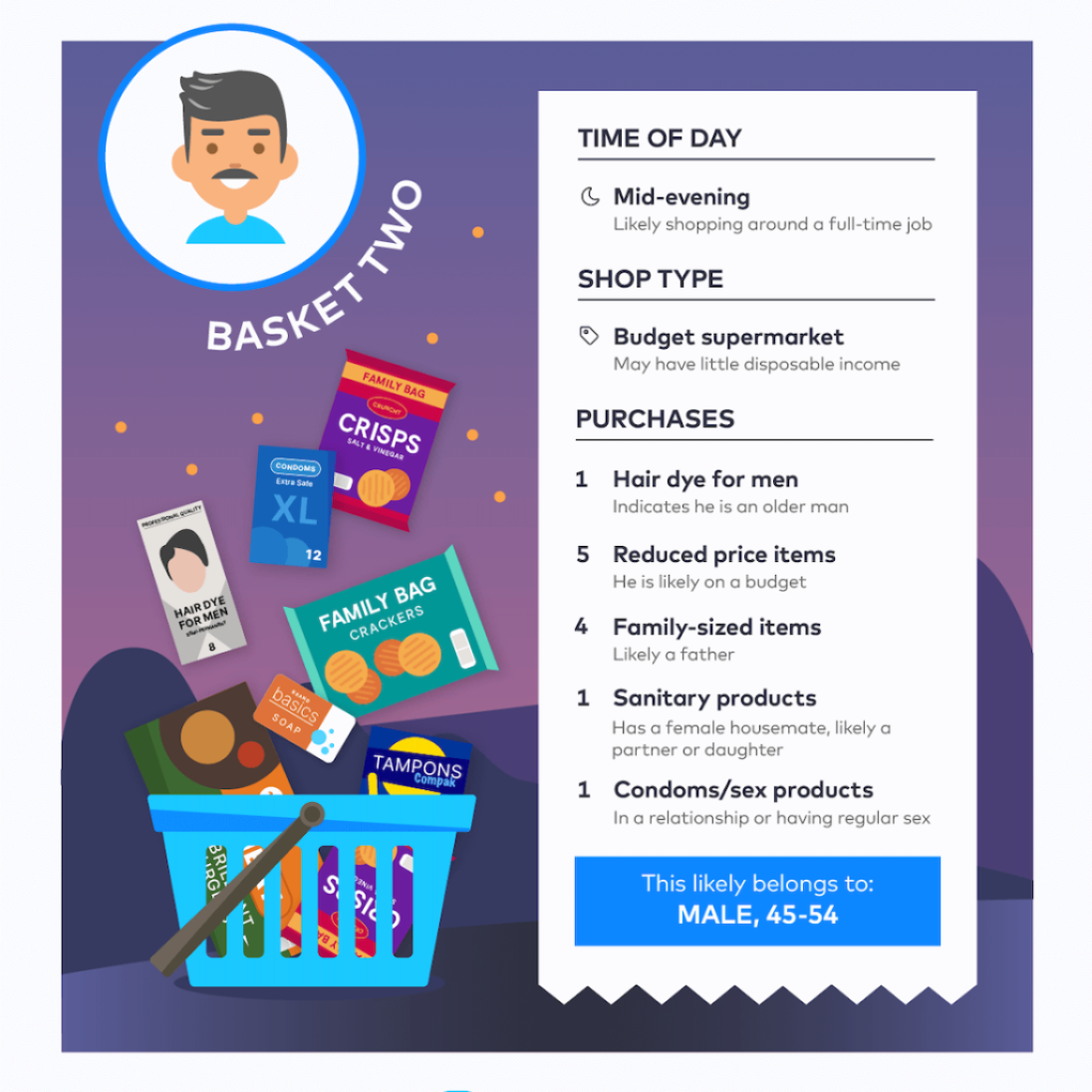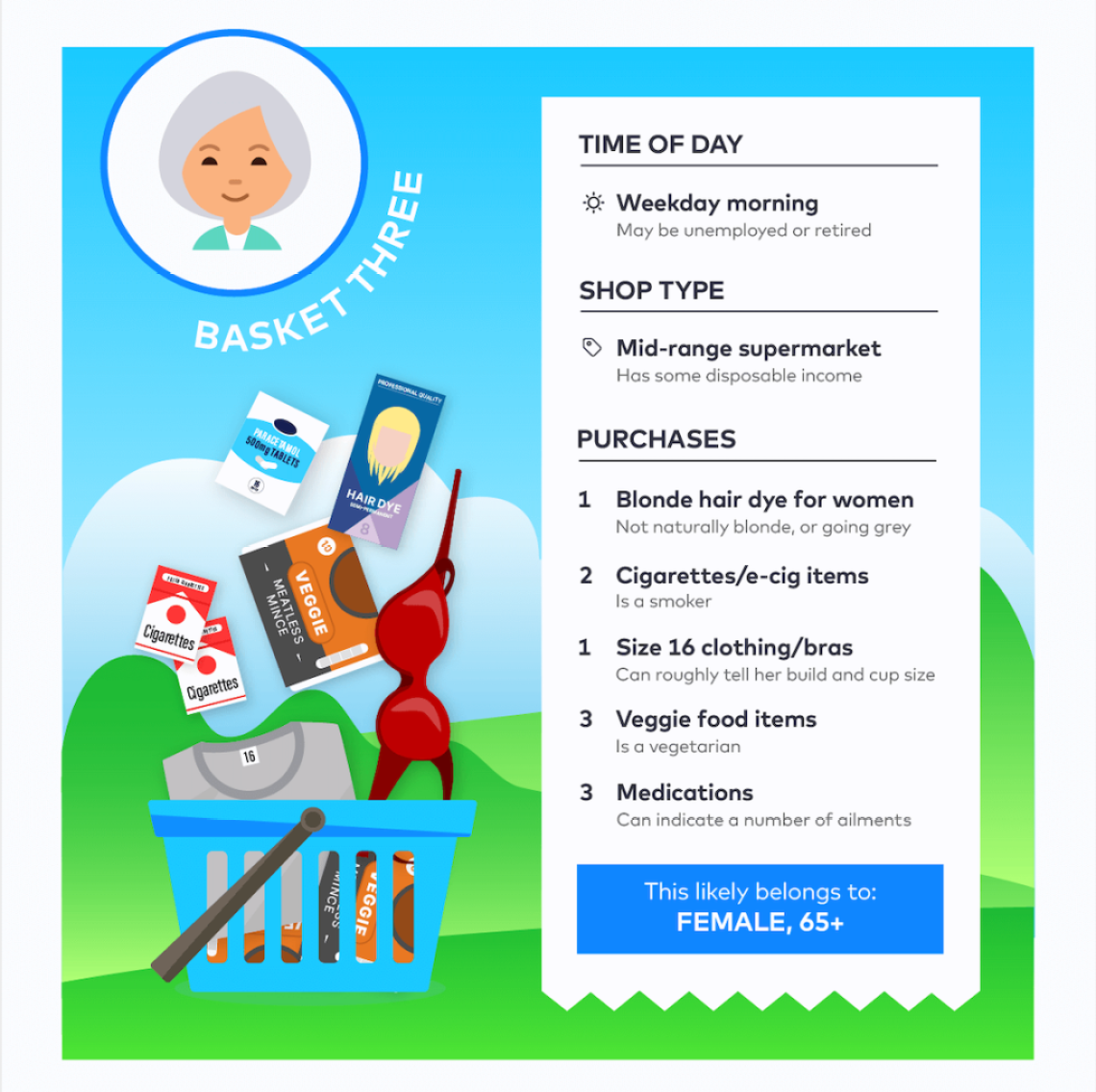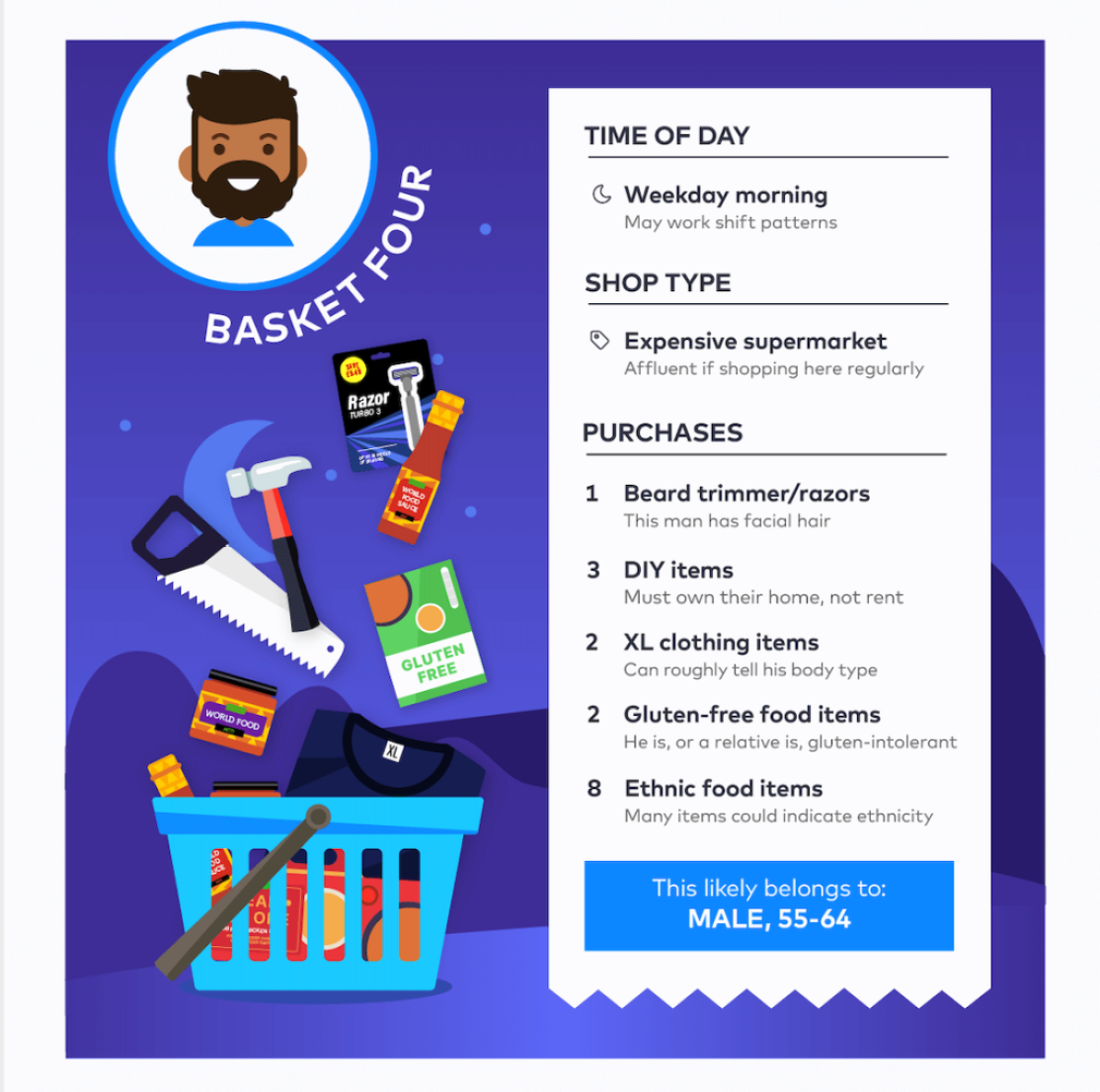New research revealed the amount of information grocery stores really have on you. The study has shown that grocery stores know all about your physical attributes, what you enjoy and what your purchases say about your domestic situation.
53% of Americans participate in a loyalty program because of ease of use, allowing stores to track their purchases. So, how exactly do grocery stores deduce what we want and what information do they have on us?
Mackeeper analyzed five shoppers to see what their carts reveal about them by looking at what times they like to shop, what shops they prefer to buy from and what they buy, to help to build a profile of who they are and what they look like.

What does this tell the store?
- By shopping in the mornings and we know she has some disposable income from shopping at a mid-range supermarket.
- They know she is due on her period and has young children at home, as needs to buy family-sized items and baby milk formula
- Her shampoo choice tell us she has curly hair, helping us build a physical appearance of this customer.
- They know she lives in a house with garden space, so not an apartment etc.
Brands want to buy access to customers data. For example, they could buy access to data on what brand of sanitary towels the customer buys so then they can target their own coupons to the consumer.

What does this tell the store?
- Buying in the evening and at a budget store means he may work full-time and be looking to save money on his groceries.
- Buying multiple family-sized, reduced price items and sanitary products shows this shopper may be buying for a big family.
- This customer buys condoms and male hair dye regularly, so the store knows he’s having regular sex and could be trying to hide his greys
Supermarkets can use your phone to track where you are in their shop and what aisles you hover over, they use this data to build the customer journeys to see how they would use the store.
In this instance, this shopper walks down the sanitary products aisle which shows to the store somebody in his household menstruates, thus building his customer profile more.

What does this tell the store?
- By buying blonde hair dye and size 16 clothing regularly, the store can deduce the physical appearance of this shopper – even down to her cup size.
- By shopping throughout the week, and by buying multiple medication types we could infer this customer is older and retired or unemployed.
- Cigarettes in her regular shop expose she has an addiction, which could suggest more around her health or physical appearance.
- She buys veggie meals regularly, indicating she is either a vegetarian, lives with one or prefers a more plant-based diet.

What does this tell the store?
- This shopper is loyal to an expensive supermarket and regularly shops here, suggesting he may be on a higher income.
- His choice to shop weekday mornings may indicate he works irregular shifts, or could be semi-retired.
- He buys XL sized clothing items and razors for facial hair; providing the store information on his physical appearance.
- By buying gluten-free foods, it indicates he or his household may have intolerances.
- Purchasing DIY items tells the store about his living situation – if he’s making permanent changes, they know he owns his home and doesn’t rent.

What does this tell the store?
- The combination of multiple caffeine products and meal-for-one items suggest this person lives alone with a busy schedule.
- By buying makeup in-store, the grocery store can deduce her ethnicity or skin tone, as well as her size after she purchases size 10 clothing.
- Purchasing sex products tells the store that even if she lives alone, she’s sexually active and/or dating.
- This customer regularly shops on a weekday morning at an expensive supermarket, telling us she may have a busy week schedule but could earn a high income.
Grocery stores know ALL your shopping secrets
You could pay by cash, card or be part of a loyalty scheme and grocery stores would still know everything about you.
They collect huge amounts of data on what you buy, how much you spend and your loyalty towards the stores themselves.
For instance Walmart gained 30 million subscribers to its new Walmart + Loyalty scheme in its first two weeks of launch and each week they serve 265 million customers globally!
This data is then used to personalise what you see when you log on to do an online shop, or to tailor offers to you in-store.
“We need to make sure that when grocery store collect data the consumer gets relevant and appropriate responses that enables them to have a better shopping experience. This, of course, cannot happen without data collection but consumers need to understand how and what data is being used when they step foot into a supermarket. Every purchase they make paints a better picture of them, their lives and living situations to the grocery store.”
Vadym Lysenko, Anti-malware lead at Mackeeper
You can read the full study here.
SOURCE: Mackeeper
